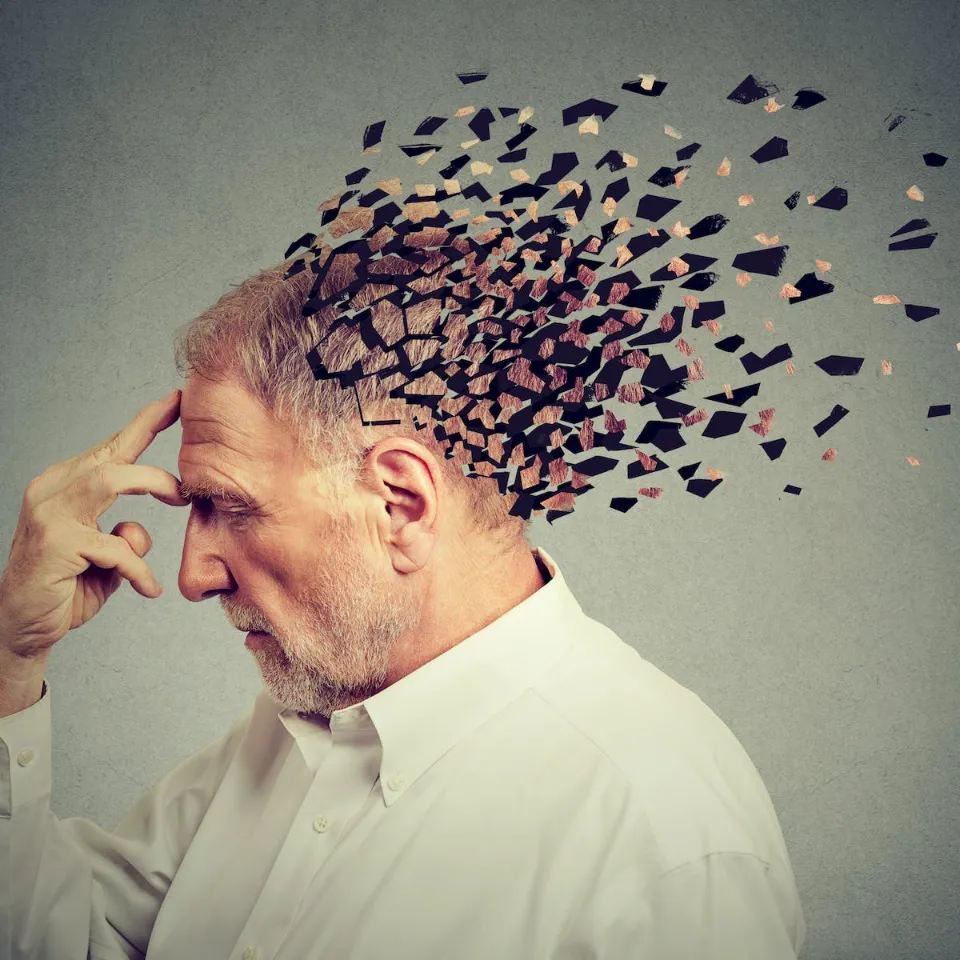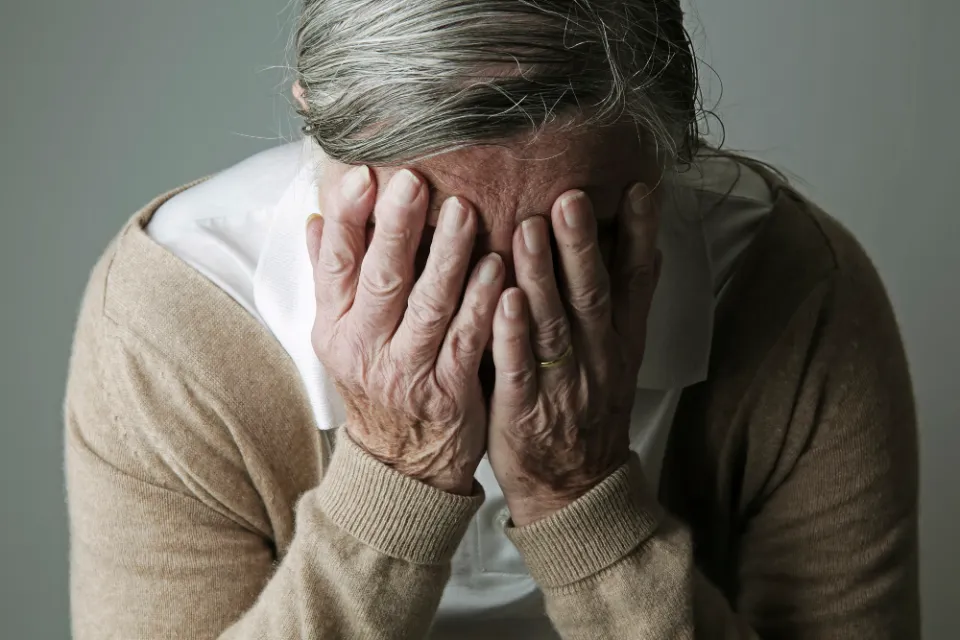In the US, one of the leading causes of death is Alzheimer’s disease. Then you may wander: How does Alzheimer’s kill you?
Brain cell death is one of the many ways it can result in death. Brain cells die as a result of the neurological disease Alzheimer’s disease. It is the main cause of dementia or memory loss in older people.
The National Institute on Aging also reports that the disease is the seventh leading cause of death in the United States. Continue reading to discover more about how Alzheimer’s disease results in death.
What is Alzheimer’s Disease?
Alzheimer’s disease is a neurological condition brought on by the shrinkage and death of brain tissue.
It typically starts with minor symptoms before gradually progressing into more severe effects.
The exact cause is unclear. A combination of genetic, environmental, and lifestyle factors, according to experts, may be to blame. These include:
- Aging: Although it can happen to younger people as well, Alzheimer’s disease typically affects people 65 years of age and older.
- Heart health: Alzheimer’s disease risk factors could be linked to heart disease risk factors. These include smoking, being overweight or obese, and not exercising enough.
- Family history: According to some sources, if a parent or sibling has the condition, a person may be more susceptible to developing it themselves. Apolipoprotein E gene variants are linked to an increased risk, according to other research.
The hallmark symptom of Alzheimer’s disease is dementia. The condition can cause a person to lose track of recent events and familiar surroundings. They might also keep asking the same queries.

Other early symptoms include:
- Difficulty completing familiar tasks
- Difficulty concentrating and thinking
- Confusion and disorientation
- Mood changes and anxiety
- Misplacing things
- Personality changes
- Difficulty making decisions
- Hallucinations and delusions
If you or someone you know is exhibiting any of these symptoms, make sure to call a doctor.
What is the Death Rate for Alzheimer’s Disease?
In the United States, one of the leading causes of death is Alzheimer’s disease. According to recent reports:
- It is one of the top 10 most common causes of death in the U.S.
- It is the fifth leading cause of death among adults ages 65 years or older.
- More than 93,500 people lived in the U.S. died from the condition.
How Does Alzheimer’s Kill You?
The brain is responsible for more than thought, memory and understanding. Our breathing, circulation, and digestive systems are all under its control. Brain cells are destroyed by Alzheimer’s disease. In the beginning, these damages cause issues with recalling information and verbal communication. But over time, the brain damage spreads throughout the body, eventually causing death. This can be from a number of causes:
Food and Frailty
In the later stages of dementia, people struggle to eat well and stay healthy. They might find it difficult to shop for and prepare meals, stop eating, and lose weight. They start to lose muscle control and may become unable to chew or swallow toward the end of the illness. Without food, people can become weak and frail, increasing their risk of infections, falls, fractures, and even death.
Co-existing Illnesses
Many people living with dementia also have other chronic conditions like heart disease, hypertension, diabetes and chronic respiratory disease. With Alzheimer’s, it can be more challenging to look after your general health and wellbeing, so complications associated with these conditions can become more likely.
Aspiration and Infections
Breathing and swallowing coordination are both under the control of the brain. This ability is lost in dementia that has reached its final stages. Your loved one may experience dehydration or inhale food or liquids, which can cause choking and aspiration pneumonias, which are chest infections. These may pose a risk to life.
Accidents and Incidents
Dementia can affect people’s ability to live safely and independently. Accidents in the home and on the road may be more likely as a result of memory loss, difficulties with planning, and difficulty completing complex tasks. Impairments to mobility, stability, and spatial awareness can all increase the risk of falls and fractures that can be dangerous.

Skin Ulcers
Both physical and mental function gradually deteriorate as a result of Alzheimer’s. As a result of the stiffened muscles, your loved one will require assistance just to move around and handle every day tasks. This can increase the risk of pressure sores and ulcers, which can become infected, putting the individual in danger.
Individuals who have advanced Alzheimer’s disease become less able to communicate and react to their surroundings. The loss of brain function causes the heart, lungs, and digestive system to malfunction. Towards the end, people frequently require 24-hour care to remain comfortable.
Continence and Self-care
As dementia progresses, managing personal hygiene and using the restroom becomes more challenging. Many sufferers lose control of their bowels and bladder in the later stages. This raises the possibility of urine infections, which can result in delirium, worsened confusion, and falls. They can be fatal, especially for elderly people who are already weak.
You may also want to know how Lewy body dementia kill you.
How to Take Care of People With Dementia
People who are early in the progression of Alzheimer’s disease and related dementias experience changes in thinking, remembering, and reasoning that have an impact on day-to-day activities. The need for assistance with basic, every day tasks will increase over time for those who have these illnesses. Bathing, grooming, and dressing are a few examples of this. A person who needs assistance with such private matters may find it upsetting. Here are a few tips to consider early on and as the disease progresses:
- Maintain a routine by taking a shower, getting dressed, and eating at the same time every day.
- Instead of using shoelaces, buckles, buttons, or fabric fasteners, invest in loose-fitting, comfortable clothing that is easy to wear.
- Plan enjoyable activities for the person and make an effort to do them at the same time every day.
- Aid the person in keeping track of tasks, appointments, and events in a journal or calendar.
- When dressing or bathing, allow the person to do as much as possible.
- Manifest decency and courtesy. As you assist the person with getting dressed or taking a bath, describe what you are going to do in detail.
- To support and prevent falls, use a solid shower chair for a person who is unsteady. Shower chairs are available at pharmacies and medical supply stores.
- Consider a system or reminders for helping those who must take medications regularly.
- Give the person enough time to eat and serve meals in a dependable, familiar location.
Summary
Alzheimer’s disease is a neurological condition brought on by brain shrinkage and cell death. Typically, it causes personality changes, dementia, and disorientation. In its later stages, Alzheimer’s disease can lead to a severe loss of brain function. Numerous complications, including death, may result from this.
If your loved one has Alzheimer’s disease, it is important to take good care of them. To maintain their well-being, doing so can be very helpful.
FAQs
How Long before Alzheimer’s is Fatal?
On average, a person with Alzheimer’s lives four to eight years after diagnosis, but can live as long as 20 years, depending on other factors.
When Death is Near Alzheimer’s?
Lose consciousness. be unable to swallow. become agitated or restless. develop an irregular breathing pattern.



